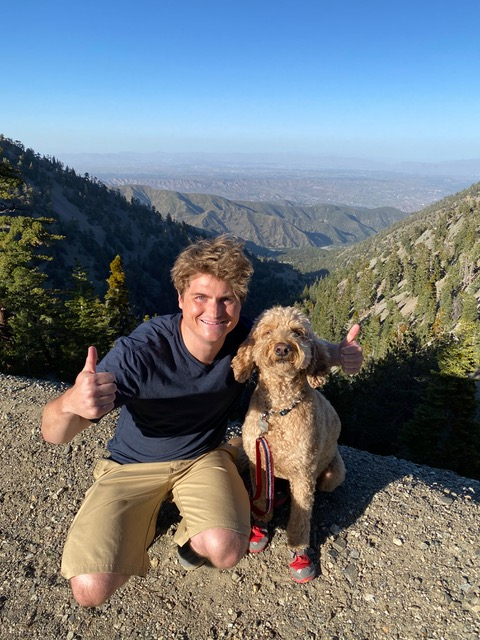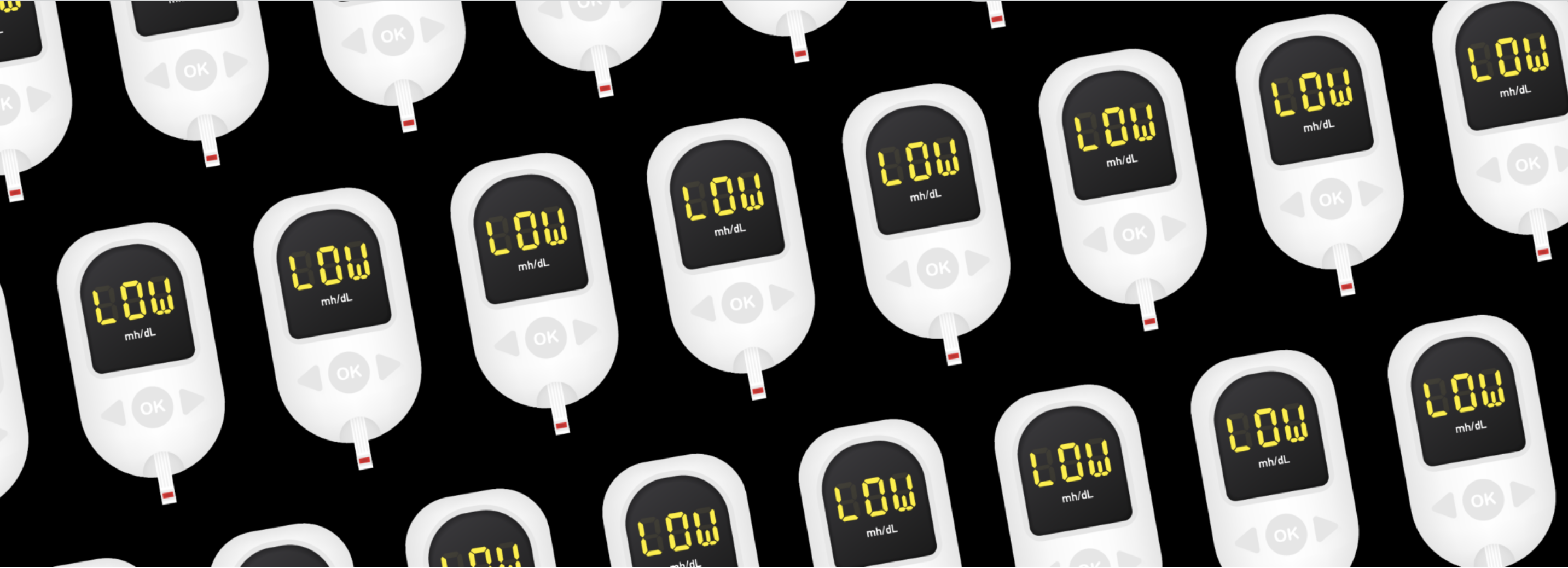A New Pancreas and a New Lease on Life
Written by: Alexi Melvin
5 minute read
August 21, 2020
Brandon Mouw lived with type 1 diabetes for 31 years.
You may notice that I used the past tense. He had type 1 diabetes. While I wish that I could claim that some miracle cure has finally been discovered—this isn’t exactly that kind of story.
Brandon is a pancreas transplant recipient.
We don’t often hear about the stories of those who have undergone a pancreas transplant. Perhaps it is because it is widely considered to be an absolute “last resort,” and should not be something to strive for. But Brandon wanted to speak with Beyond Type 1—because he felt that the information needed to be out there, even if he isn’t “technically” living with type 1 diabetes any longer. He still has a story to share with the community.
After being diagnosed at age 3, Brandon remembers having a fairly manageable life with type 1 diabetes. That is, until approximately the time he began law school.
“At first it was just blamed on stress like, ‘Oh, it’s just stress. You need to dose less. Eat more often,’” Brandon remembers. “And then I ended up having some terrible pain in my left side, and I just wrote it off as like, ‘Ah. It’s nothing. I went on a hike or I bumped into something.’”
It did, however, become clear that something was very wrong. Brandon remembers collapsing to the ground in pain, feeling as if he was low, but his numbers were normal.
“I drove to the hospital and told them what was going on,” Brandon says. “And really quickly, they got me back there and did scans and said that I had two kidney stones, the size of my left thumbnail in my kidney, my left kidney. And one of them was blocking the ureter which was blocking the drainage from happening from the kidney and that I needed emergency surgery because I was septic.”
After Brandon underwent the surgery in June of 2015, he still didn’t feel right. He was constantly suffering from uncontrollable blood sugars, no matter what he and his doctor tried. Finally, he requested a CT scan of his abdomen.
“That afternoon, the doctor called me and said I needed to go immediately to the hospital for emergency surgery because my kidney was the size of the cantaloupe,” Brandon says, “And it’s supposed to be the size of your fist, meaning that it was blocked again and wasn’t draining.”
“I had one messed up kidney that is septic and that they need to drain. And my other kidney is making up for everything that is supposed to be happening. My body was going crazy,” Brandon adds.
Brandon went through five more surgeries before he was told that everything looked fine, and that he should be experiencing better blood sugar control. Unfortunately, that was not the case. His blood sugars only worsened, very often dropping rapidly from a number such as 8.3 mmol/L150 mg/dL to as low as 2.8 mmol/L50 mg/dL in mere minutes.
“I’d pass out on the train home from work. I’d pass out at work. I was found unresponsive and was going to be pronounced dead. After that I was like, ‘Okay, we got to figure out what is going on,’ Brandon says. “And so I made appointment after appointment with doctors just saying, ‘Hey, this has got to stop.’”
“My body wasn’t digesting food completely,” Brandon adds, “So it wasn’t breaking down the carbohydrates and then the insulin wasn’t being delivered correctly because of the kidney not processing it right. So, it would just use the insulin up all at once.”
After appointments with many different doctors, one doctor strongly advised that a “life-saving pancreas only transplant” was Brandon’s only real option.
“If you don’t receive one, you have less than two years to live because your body is not meant to shut down and restart every single day,” Brandon notes of what the doctor said to him. “Like a car battery if it runs out of juice, you jumpstart it, but it can only do that so many times before it just can’t hold a charge anymore.”
“When I woke up from the transplant,” Brandon recalls, “A nurse was just saying, ‘Hey, everything is good.’” And my first question was, ‘Was it successful?’ And she said, ‘Yes.’
I said, ‘What’s my blood sugar?’ Because my blood sugar hadn’t been above 5.5 mmol/L100 mg/dL in over a year. My normal average blood glucose was 2.4 mmol/L43 mg/dL at that time when I went in for transplant.
And so she says, ‘Oh, it’s 4.8 mmol/L86 mg/dL, and we’re testing it every minute.’ I just started crying.”
Brandon notes that the recovery from his transplant in December of 2018 was strenuous. He had to learn to adapt to a life of, instead of taking insulin, taking anti-rejection drugs that come with their own side effects and a lot of trial and error.
“I’m now trying to find that happy medium of medication that my body handles well, and that the organ, the transplant is also able to tolerate well. And so, it’s like that balance that we haven’t found yet,” he says.
Brandon is careful to note that he does not consider a pancreas transplant to be a “cure” for type 1 diabetes.
“Instead of taking insulin or it being considered a cure for diabetes, it’s really just a pause,” he says. “It’s a treatment for something that nothing else can treat. And if it fails, I go right back to the spot where I was, which is like, on the brink of death.”
“I also still have hypoglycemia,” Brandon says, “Which I can feel now where I couldn’t really feel it before. I still have to test my blood and I still have to keep control over that. So, it’s an interesting thing. It’s kind of like it’s partially there, but in a much different, more muted way.”
 Brandon can now mainly eat whatever he wants, no longer needing to worry about taking insulin, but he does need to be conscious of certain foods such as grapefruit, pomegranate and undercooked meats that can break down his new medications too fast.
Brandon can now mainly eat whatever he wants, no longer needing to worry about taking insulin, but he does need to be conscious of certain foods such as grapefruit, pomegranate and undercooked meats that can break down his new medications too fast.
“Insurance doesn’t cover pancreas only transplants,” Brandon says. “It’s an optional coverage in the Affordable Care Act. And so very few insurances opt in to cover it. So, I had to raise $250,000 cash in order to pay for the surgery. I was being told that the next low blood sugar could be my last. I was literally fighting for my life.”
“Going from a person who refused to admit vulnerability, who always did everything on my own, then having to start asking people for help to see if they were willing to help me raise money—that was the biggest thing to have ever happened to me.”
Despite Brandon’s initial belief that nobody would want to contribute, he was proved wrong by a number of people that came through for him.
“There is good in humanity, and they want to help other people,” Brandon says. “And I was able to raise the money and have the surgery. I wouldn’t be here if it wasn’t for all of them.”
Brandon was not on social media for quite a while but given the overwhelming response of those who wanted to follow his journey, he decided to do something more than just text and e-mail updates to his close circle.
“I finally decided, okay, I’ll start an Instagram and start putting my stories on there and my information because then people can follow it. And now it’s kind of like a blog post with every picture. And it says what’s going on in my life and where I’m at,” Brandon says. “When things are bad it’s a great opportunity for you to ask for help. You’re not in it alone, even though it feels like it. You’re not. There are a lot of people out there.”
Although Brandon may not technically have type 1 diabetes, he still feels that he is a part of the T1D community.
“I consider myself to be a part of that community based on my experience and my ability to share my story,” he says.
“Getting a transplant is the last option available after you’ve tried everything under the sun,” Brandon notes. “And a lot of people are not fortunate enough to make it that far. Living with diabetes takes a tenacity just to live with it alone. And then when you get sick, there’s a whole other aspect that has to come into play.”
Today, Brandon is taking the time to rest his body and limit stress as much as possible in his day-to-day life.
“They don’t consider the pancreas transplant a success until year three. And they want to see the medication stable for three months without having to change anything. We haven’t reached that three-month-mark, I’ve been in rejection twice.” Brandon says.
“I do what is least stressful for me in my life right now because I don’t want to go through that rejection again. I’m no longer trying to climb the ladder and make the money and become a law partner and trying to keep up with everybody. I really don’t care about that anymore. So, I do what I need to make money and then just enjoy my time and my life and my family and see what happens after year three, where I’m at. And right now, I’m okay with that, because two years ago I thought I was going to be dead. It kind of changes your perspective on what you want to do versus what you have to do.”

Author
Alexi Melvin
Alexi Melvin serves as chair of the Leadership Council’s Content Committee. She is a journalist who has written for The San Francisco Chronicle, Beyond Type 1 and other digital publications. Alexi is also a voiceover actor and reiki master. In addition to her dedication to being a voice for people living with type 1 diabetes (T1D) everywhere, she has always been passionate about meditation and energy healing. Before getting her Bachelor of Arts degree at The New School University, she studied acting at the Lee Strasberg Institute. She hopes to continue her healing work, and to connect with other T1Ds through her travels and writing opportunities.
Related Resources

The biggest barbecue day of the year is the 4th of July! Celebrating the 4th...
Read more

Hypoglycemia and severe hypoglycemia are two things against which all people with diabetes should be...
Read more

Whether or not you have type 2 diabetes, you must eat. You must also pay...
Read more

